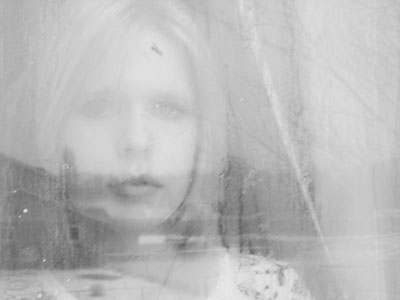All Nonfiction
- Bullying
- Books
- Academic
- Author Interviews
- Celebrity interviews
- College Articles
- College Essays
- Educator of the Year
- Heroes
- Interviews
- Memoir
- Personal Experience
- Sports
- Travel & Culture
All Opinions
- Bullying
- Current Events / Politics
- Discrimination
- Drugs / Alcohol / Smoking
- Entertainment / Celebrities
- Environment
- Love / Relationships
- Movies / Music / TV
- Pop Culture / Trends
- School / College
- Social Issues / Civics
- Spirituality / Religion
- Sports / Hobbies
All Hot Topics
- Bullying
- Community Service
- Environment
- Health
- Letters to the Editor
- Pride & Prejudice
- What Matters
- Back
Summer Guide
- Program Links
- Program Reviews
- Back
College Guide
- College Links
- College Reviews
- College Essays
- College Articles
- Back
Euthanasia: Right to Live, Right to Die
Euthanasia has been around for thousands of years, and so has its opposition. Society, religion, and medicine have balked at the idea of intentionally ending a life, even if it is to spare pain. Hippocrates himself had stated that he would refuse to give a patient a lethal injection, holding true to his oath to “do no harm”. Admittedly, the objection has been logical in the past. Lives were short enough already and there were few incurable conditions that would not cause death on their own. Yet as the world has changed, technology has advanced, allowing us to live longer than ever before. But at what cost?
In modern times, there are many incurable conditions that can be excruciating to live with. AIDS, multiple sclerosis, Alzheimer’s, cancer, Parkinson’s Disease—the list continues indefinitely. Although there are treatments available, the “cures” medical science has to offer often comes at the expense of the quality of life. All too often, patients end up in immense pain, with the task of performing basic bodily functions taken over by machines. When a person reaches that point, it is as if they are no longer truly living.
Euthanasia gives people with those diseases the option to end their suffering. To deprive individuals with terminal illnesses of that choice is to deprive them of a basic human right—the right to life, including the decision to end it if it becomes unbearable. People have the right to live with dignity, and they also have the right to die with dignity if they so choose. There is the fear that legalizing euthanasia can cheapen the value of life, since it allows life to be ended so easily. However, euthanasia actually improves the quality of life by giving the option to avoid unnecessary pain and suffering. In knowing they can set a date when they can die, a person will often choose to live the days they have left to the fullest. It also spares relatives the grief and pain of seeing their loved one in agony. Yet current laws are failing. According to Britannica, there were dozens of court cases in 2018 placing people already faced with the loss of a family member in the midst of distressing legal battles. Whether we like it or not, a desire for physician assisted suicide clearly exists among terminal patients and it is irrational and cruel to deny them the right.
Legalizing euthanasia also prevents drastic suicide measures from terminal patients who no longer want to live with pain. Tony Nicklinson, a man with locked-in syndrome that prevented all muscle movement, starved himself to death because his bid to die was rejected by courts multiple times. Imagine wasting away in agony, knowing the suffering could have been ended with a simple, painless injection. He is far from the only one. Kelly Taylor, Paul Reddy, and Diane Pretty all have similar stories. Society’s unconditional aversion to death has driven these people to die excruciatingly, causing, and even exacerbating, the very problem people were so eager to avoid in the first place. There is also the fear that legalizing euthanasia could lead to its abuse, harming those that are vulnerable. But in reality, the opposite is true. Even after legalization, euthanasia is still administered infrequently, between 0.3% to 4.6% of all deaths according to a peer reviewed paper published in JAMA. By placing the procedure under legal control, governments also have the power to put guidelines and restrictions in place to ensure it is carried out safely. According to the New England Journal of Medicine, the number of euthanasia procedures carried out without the patient’s explicit permission was 0.8% before euthanasia was legalized. After it was, the number of unwanted deaths was halved. In Britain, where euthanasia is illegal, a 2012 study discovered that as many as 57,000 patients each year die without being told that efforts to keep them alive have been stopped. Doctors were already practicing euthanasia but without restrictions to keep it in check. Legalizing it would allow governments to implement methods to prevent it from being abused. It would protect the vulnerable and give people the rights they are due.
After all, a civilized society would let its people choose to die without pain. A civilized society would recognize that our bodies are our own and to trust that we as individuals know when it is time to go. As modern science advances, people are able to live for longer and longer but the methods used to extend life can detract from its quality. Euthanasia must be made available to society, now more than ever. Take a step back from the fog clouding the issue and look with clear eyes. We have a right to die with dignity. Even if you personally do not choose to use it, would you be cruel enough to deny it to others?

Similar Articles
JOIN THE DISCUSSION
This article has 0 comments.
